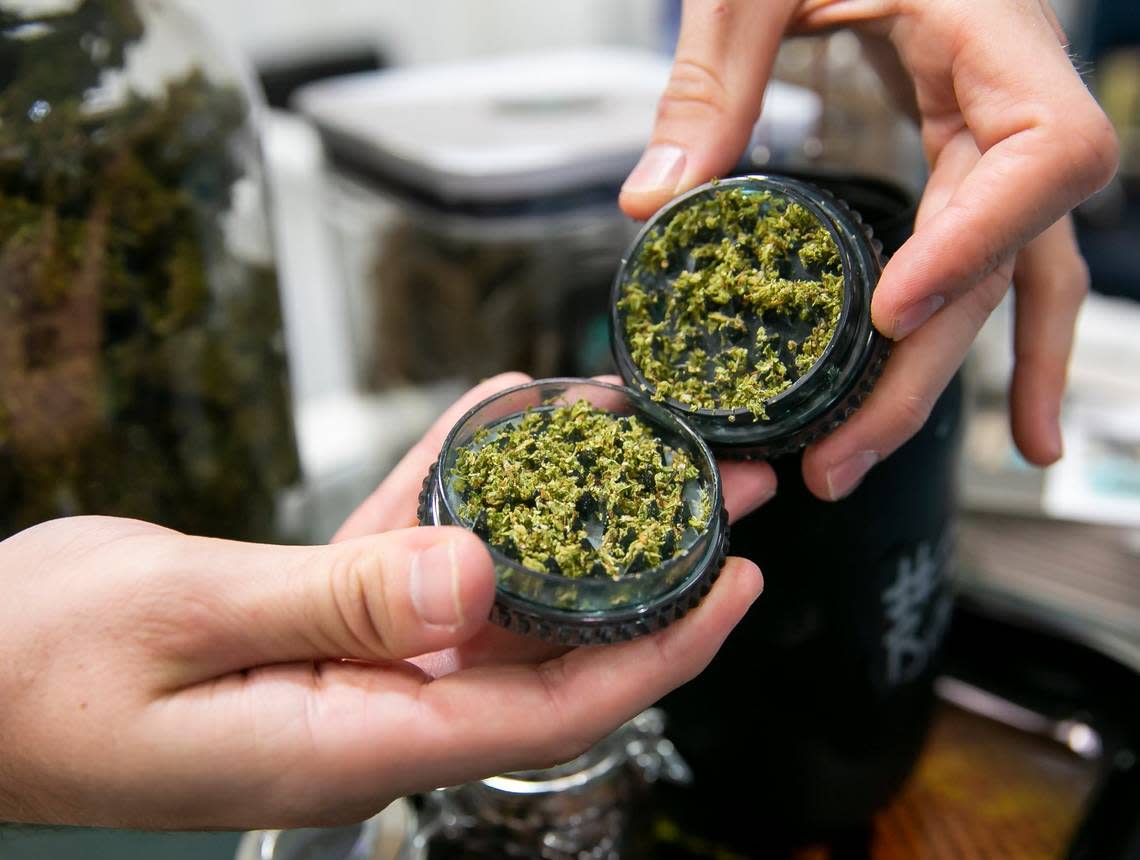Arguments to keep marijuana illegal don’t hold up against reality in Florida | Opinion

Cannabis prohibition has done nothing but waste billions of taxpayer dollars, produce discriminatory policies and destroy communities.
Thankfully, recent momentum is promising. The Florida Supreme Court has approved the ballot language of Amendment 3 that seeks to legalize adult-use cannabis in the November elections.
The U.S. Drug Enforcement Administration (DEA) proposed reclassifying cannabis as a Schedule III substance instead of Schedule I along with drugs like heroin. Former DEA Administrative Law Judge Francis L. Young called the plant “the safest therapeutically active substance” as far back as 1988.
Despite progress made over the last 26 years, many public officials amplify their disdain for reform with cherry-picked data and biased analysis. As Election Day nears, prohibitionists must retire their contrarian arguments. Balanced data and analyses illustrate that we must legalize cannabis and implement effective policies that ensure a secure market.
Economic and criminal justice failures
In 2016, Florida spent more than $180 million enforcing marijuana prohibition, according to the Cato Institute. John Gettman’s book “Crimes of Indiscretion: Marijuana Arrests in the United States” estimates that, nationwide, the criminal justice system spent $7.65 billion in a single year incarcerating Americans.
These vast outlays have failed to limit illegal cannabis availability. Instead, already marginalized communities have been torn apart. Despite equal usage, black Floridians are 4.2 times more likely to be arrested for cannabis possession than white Floridians, according to a 2013 American Civil Liberties Union report. Counteracting this flawed system through legalization would save $7.7 billion in federal government expenditure and generate nearly $8.5 billion in annual tax revenue for all states, according to the Tax Foundation.
Federal prohibition fuels the illicit market
As adult-use legalization efforts strengthen in Florida, Gov. Ron DeSantis insists the expansion of a legal cannabis market creates a more robust illicit market. Unfortunately, the governor’s actions are likely fueling the illegal market he claims to be wary of.
In Canada, data suggests that a growing legal market diminishes illicit market share. In California, industry leaders point out that legalizing adult- and medical-use cannabis in some states but not others encourages unlicensed growers to ship their product to distributors in illicit markets. These issues can be addressed by establishing a federal program, devoid of heavy taxation, that provides opportunities for businesses, including those led by experienced individuals, to penetrate the market effectively.
Causation vs. correlation in health
The DEA’s rescheduling proposal hasn’t deterred prohibitionist advocates from exploiting misleading statistics and baseless claims to incite cannabis-related hysteria. As Jacob Sullum writes in a recent column, they “ignore the benefits of legalization and systematically exaggerate its costs.”
Former federal officials William Barr and John Walters wrote a Free Press op-ed littered with elementary falsehoods. They argue liberal cannabis laws lead to increased “marijuana-related ER visits”, sourcing an article that provides zero evidence of injury.
Elsewhere, the duo cites a Centers for Disease Control and Prevention report to argue that, “one in three people who use marijuana become addicted.” The report analyzes “marijuana use disorder” data and doesn’t claim one in three become addicted. The duo conveniently overlook inter-drug comparisons that suggest cannabis presents less risk than many legal substances. Cannabis mortality risk is 114 times less than alcohol-related mortality risk. There’s never been a fatal cannabis overdose, but alcohol poisoning accounts for 1,600-plus U.S. deaths annually, according to the CDC.
Contrary to prohibitionist arguments, researchers and federal agencies alike note that “cannabis has been used as a medicine for thousands of years” and most adults consume it in “a manner that does not lead to dangerous outcomes.”
Looking to the future
The days of federal agencies classifying cannabis alongside substances like heroin must end. The days of Florida officials claiming a legalization event will cause the state “to smell like marijuana” must end. Legalization discourse must be grounded in a balanced and scientific review of evidence and consider the broader context of cannabis use in a society that prioritizes freedoms, public health, and economic expansion.
Such discourse would facilitate legalization events. The most important result, however, would be the creation of an informed national industry that guides effective policy and personal decisions.
Andrew Sturner is co-founder and managing partner of Entourage Effect Capital, a cannabis investment firm.

